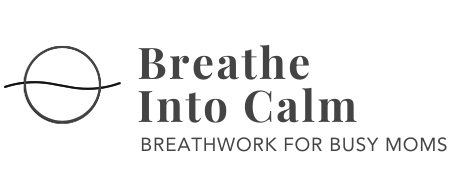
10 Expert Tips to Recognize and Overcome Mom Burnout Early
You know that feeling when you’re running on empty but still expected to be the best version of yourself? That’s mom burnout, and it’s become almost like an epidemic among working moms these days. I’m talking about that deep exhaustion that doesn’t go away after a good night’s sleep—if you even get one.
Mom burnout isn’t just being tired. It’s when the chronic stress of juggling work deadlines, school pickups, meal prep, and everything else starts affecting your physical and emotional health. Your body literally starts keeping score. We’re seeing headaches that won’t go away, digestive issues appearing out of nowhere, and this constant low-level anxiety that feels like background noise you can’t turn off.
Here’s what really bothers me—so many working moms ignore these warning signs until they hit a wall. I’ve been there, pushing through until my body basically forced me to pay attention. The physical toll shows up as muscle tension, sleep problems, and a weakened immune system. Emotionally? You might find yourself snapping at your kids over small things, feeling distant from your partner, or just going through the motions without really feeling present.
Catching working mom burnout early makes all the difference. In this article, we’re sharing 14 expert strategies—including breathwork for stressed busy working moms—that can help you reclaim energy and actually enjoy this crazy journey of motherhood again.
Table of Contents
ToggleAffiliate disclosure: some of the links on this site are affiliate links, meaning at no additional cost to you, I will be earning a commission if you click through and purchase.
Share this post:
Understanding Mom Burnout: What It Really Feels Like
Mom burnout symptoms can be sneaky. One moment you’re managing fine, and the next, you’re parked at Target, tears streaming down your face, unable to recall why you even went there. That relentless tiredness isn’t just regular fatigue—it’s an all-encompassing weariness making your body feel leaden, where even simple tasks like brushing your teeth become Herculean challenges.
The Emotional Rollercoaster
I vividly recall when emotional exhaustion first hit me. Initially, I shrugged it off as just another “bad week.” But in reality, it was much more than that. My moods were unpredictable—I would swing from being relatively okay to snapping at my kids over trivial matters like a cup left on the counter. Irritability became my constant companion, making every spoken word feel grating. Anxiety would strike out of nowhere, sending my heart into a frenzy while I stood still preparing lunch. And focusing? That was a lost cause. I’d find myself reading the same email multiple times without grasping its content.
The Physical Toll
The experience of being a burnt-out mom becomes even messier when we consider what’s going on inside our bodies. After having children, many of us undergo significant hormonal changes and nutrient deficiencies that often go unspoken about. Your iron levels might be low, your vitamin D depleted, your thyroid functioning erratically. These physical imbalances exacerbate every symptom of burnout exponentially.
I felt emotionally disconnected from my husband and children—like I was merely observing my life through blurry glass rather than actively participating in it. This detachment frightened me more than anything else because these were the individuals I cherished most, yet all I could feel was emptiness.
The Physiology Behind Stress and Burnout in Working Moms
Your body doesn’t know the difference between running from a bear and dealing with a toddler meltdown while you’re on a work call. Seriously. The physiological stress response kicks in either way, flooding your system with adrenaline and cortisol like you’re in actual danger.
I remember sitting at my desk one afternoon, heart racing so fast I thought something was genuinely wrong with me. My chest felt tight, my hands were shaking, and I couldn’t catch my breath. Turns out, it wasn’t a heart attack—it was my body’s way of screaming that I’d been operating in fight-or-flight mode for way too long. The constant juggling of deadlines, school pickups, meal prep, and trying to be “present” for everyone had turned my nervous system into a complete mess.
Here’s what’s actually happening inside your body when you’re chronically stressed:
Your heart rate stays elevated throughout the day, even during supposedly “calm” moments
Muscle tension builds up in your shoulders, neck, and jaw (hello, tension headaches)
Palpitations become so common you almost stop noticing them
Your digestive system goes haywire because blood flow gets redirected to your muscles
Cortisol levels are the real troublemaker here. This stress hormone is supposed to spike temporarily to help you handle immediate threats, then come back down. But when you’re constantly stressed? Those cortisol levels stay elevated, wreaking havoc on everything from your blood pressure to your immune system.
The good news? Breathwork can actually interrupt this cycle by activating your parasympathetic nervous system—the part responsible for calming everything down. It’s like hitting a reset button on your body’s stress response, and honestly, it’s one of the few things that’s actually worked for me without requiring a prescription or a complete life overhaul.
Breathwork 101: How Simple Breathing Exercises Can Save Your Sanity
Breathwork for stress relief is basically intentional control of your breathing patterns to influence your mental, emotional, and physical state. Sounds fancy, right? But honestly, it’s just about breathing with purpose instead of that shallow chest-breathing we all do when we’re running around like crazy people. For stressed busy working moms, breathwork offers immediate relief without needing special equipment, a gym membership, or even leaving your car in the parking lot before walking into work.
The Box Breathing Technique
The Box Breathing Technique became my go-to relaxation technique for moms who need something quick and effective. Here’s how it works:
Breathe in through your nose for a count of 4
Hold that breath for 4 counts
Exhale slowly through your mouth for 4 counts
Hold empty for 4 counts
Repeat the cycle 4-5 times
You can do this literally anywhere—waiting for your coffee to brew, sitting in traffic, hiding in the bathroom for a minute of peace. The equal counts create this sense of balance that your nervous system desperately needs when everything feels chaotic.
Check out this article for an in-depth dive into the benefits of box breathing.
The 4-7-8 Breathing Technique
The 4-7-8 Breathing Technique is what I call my emergency brake for those moments when anxiety hits hard or when you’re lying in bed at 2 AM with your brain spinning through tomorrow’s to-do list. Dr. Andrew Weil developed this one, and it’s been a lifesaver for improved wellbeing:
Place your tongue against the ridge behind your upper front teeth
Exhale completely through your mouth, making a whoosh sound
Close your mouth and inhale quietly through your nose for 4 counts
Hold your breath for 7 counts
Exhale completely through your mouth for 8 counts, making that whoosh sound again
Repeat this cycle 3-4 times
That longer exhale is key—it signals your parasympathetic nervous system to chill out. I’ve used this before difficult conversations with my boss, after heated moments with the kids, and pretty much every night when I’m trying to wind down. The first few times felt awkward and I kept losing count, but now it’s second nature.
For further details on this excellent technique, see his article.
Practical Tip #1–5: Immediate Strategies to Ease Burnout Symptoms
Look, I get it—when you’re in the thick of mom burnout, someone telling you to “just breathe” feels about as helpful as a screen door on a submarine. But here’s what I learned after literally collapsing at my desk one Tuesday afternoon: these quick relaxation exercises actually work when you’re desperate.
Tip #1: The 3-Minute Mindfulness Reset
I used to think mindfulness for working moms meant some elaborate meditation setup with candles and whale sounds. Nope. I’m talking about three minutes in your car before walking into daycare pickup. Set a timer, close your eyes, and just notice your breathing. That’s it. No judgment if your brain immediately jumps to the grocery list—mine always does. The point is creating these tiny pockets throughout your day where you’re not actively doing seventeen things at once.
Tip #2: Desk Stretches That Don’t Look Ridiculous
My shoulders were basically up by my ears for two solid years before I realized I was holding tension like it was my job. Now I do neck rolls and shoulder shrugs right at my desk—looks like I’m just thinking hard about that spreadsheet. Stretch your wrists too if you’re typing all day. These stress management tips sound stupidly simple, but releasing that physical tension actually helps your brain calm down.
Tip #3: The 5-4-3-2-1 Grounding Technique
When anxiety hits and you feel like you’re gonna lose it in the Target checkout line, try this: identify 5 things you can see, 4 you can touch, 3 you can hear, 2 you can smell, and 1 you can taste. It literally interrupts that panic spiral and brings you back to right now instead of catastrophizing about everything that could go wrong.
Tip #4: Strategic Bathroom Breaks
Sometimes you just need to lock yourself in the bathroom for two minutes of deep breathing. I’ve done this at work, at home, at my kid’s soccer game. No shame. It’s better than snapping at everyone.
Tip #5: Keep a Stress Ball Handy
Sounds cheesy but squeezing something when you’re overwhelmed gives your body a physical outlet for that nervous energy. I keep one in my purse and one in my car.
Practical Tip #6–10: Long-Term Lifestyle Adjustments That Work (For Moms) Too!
Remember, managing stress is an ongoing process. Experiment with different techniques until you find what works best for you. With time and practice, you’ll develop a toolbox of strategies to navigate life’s challenges with resilience and grace.
Tip #6: Block Out ‘Me Time’ Like It’s a Doctor’s Appointment
I used to feel so guilty scheduling time for myself. Like, who was I to need a break when everyone else needed me? But here’s what I learned the hard way—if you don’t put it on the calendar, it won’t happen.
Start treating your personal time as non-negotiable. I’m talking about actually writing “Sarah’s time” or whatever your name is into your planner. It doesn’t need to be some spa day either. Sometimes my “me time” is literally sitting on the back porch with a cup of tea watching the sky change colors. Twenty minutes of silence can feel like a vacation when you’re used to constant noise and demands. It will do wonders for cambating that mom burnout!
Tip #7: Get Comfortable With Delegation (Yes, Really)
This one still trips me up sometimes. I had this weird belief that asking for help meant I was failing somehow. Spoiler alert: that’s complete BS.
Start small if delegation feels uncomfortable. Maybe your partner handles bath time twice a week. Maybe you hire someone to clean every other week. Maybe you ask your teenager to start their own laundry. The guilt will try to creep in, but remember—you’re not taking anything away from anyone by lightening your load. You’re actually modeling healthy boundaries.
Tip #8: Build Sustainable Self-Care Habits Into Existing Routines
Forget adding more to your plate. Instead, layer self-care into what you’re already doing. I practice breathwork for stressed busy working moms for improved wellbeing while my coffee brews in the morning. Three minutes of intentional breathing before the chaos starts has changed my entire day. You can do gentle neck rolls while waiting for dinner to cook or practice gratitude while brushing your teeth at night. The key is making it into a habit!
Tip #9: Nurture Your Social Connections
Maintaining strong social ties is vital for emotional well-being. Make time for nurturing relationships with friends and loved ones. Plan regular get-togethers or even virtual hangouts to stay connected.
Tip #10: Seek Professional Help If Needed
Sometimes stress becomes too overwhelming to manage on our own. Don’t hesitate to seek assistance from a therapist or counselor who can provide guidance and support tailored to your specific needs.
The Emotional Journey: Accepting Imperfection and Celebrating Small Wins Along The Way To Recovery From Mom Burnout
I used to have this ridiculous mental checklist that haunted me daily. Healthy homemade breakfast? Check. Kids dressed in matching outfits? Check. Work presentation perfect? Check. House spotless by 8 PM? Yeah, that one never happened, and I’d beat myself up about it every single night.
The turning point came when I burned dinner, forgot my daughter’s permission slip, and showed up to a Zoom meeting with spit-up on my shoulder—all in the same day. I literally sat on my kitchen floor and cried. My husband found me there and said something that stuck: “You’re trying to be perfect at everything, which means you’re actually present for nothing.”
Emotional resilience for moms isn’t about adding more to your plate. It’s about recognizing that the cracked, messy, imperfect version of motherhood is the real one. That Instagram-worthy life? It doesn’t exist behind closed doors – for anyone.
I started keeping a “wins journal” on my phone. Sounds cheesy, but hear me out. Every day, I’d note three tiny victories:
Got through bedtime without yelling
Remembered to drink water before 3 PM
Asked for help instead of suffering silently
These weren’t earth-shattering accomplishments. They were proof I was showing up, even when it felt like I was failing. Some days, my win was simply “stayed alive and kept kids alive too.” And you know what? That counted.
The guilt around imperfection is real and suffocating. But here’s what I learned the hard way—that guilt serves no one. Not you, not your kids, not your partner.

Why Learning Breathwork From Professionals Matters (And Where You Can Find Them!)
I tried teaching myself breathwork from random online videos for months, and honestly? I was doing it wrong the whole time. Turns out I was breathing too shallow and holding my breath in ways that actually made my anxiety worse—not exactly what I wanted.
That’s why enrolling in a comprehensive course on breathwork through an expert-led platform like Mindvalley makes such a difference. Mindvalley offers a professionally designed program that guides you step-by-step with a certified instructor who help you and show you how effective breathwork can be for calming your nervous system.
For busy, stressed moms looking to improve wellbeing through breathwork, having the structured guidance Mindvalley provides means you’re actually getting the nervous system regulation you desperately need. Instead of wasting weeks fumbling through techniques on your own, their 14-day course fast-tracks your progress with expert instruction and supportive community access.
Mindvalley’s online platform is also perfect for moms juggling tight schedules—you can practice anytime, anywhere, without needing to leave the house.
Investing in a professional course like Mindvalley’s breathwork program pays off way faster than going it alone—and it’s a game-changer for reclaiming calm amidst the chaos!
Leave a reply
Got any questions or want to share your favorite breathing exercises? Let me know in the comments below!







